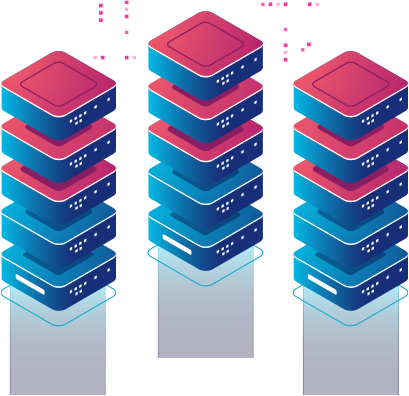

自2019年香港“修例风波”爆发以来,香港的政治情况一直在发生变化。这些政治变化对于互联网公司来说带来了风险,因为这些公司不希望被卷入政治纷争。因此,很多互联网公司选择屏蔽香港和台湾的IP地址,以保护自己不被卷入政治纷争之中。
屏蔽香港和台湾的IP地址,主要是由于政治原因。近年来,中国大陆和香港、台湾之间的政治关系一直非常紧张,这些关系已经成为全球互联网公司的一大难题。同时,为了避免因为互联网内容触及涉及政治或敏感内容的问题暴露在更多的风险中,许多互联网公司选择屏蔽这些地区的IP地址。这也是为了确保他们的业务能够稳定地运行,不受外界的支配和干扰。
从用户的角度来看,屏蔽香港和台湾IP会对用户的访问产生影响。因为如果服务器屏蔽了这些IP地址,用户就无法通过它们进行访问。这会导致许多香港和台湾的用户无法访问某些国际网站或服务,这对这些用户来说是非常不利的。对于那些跨国公司来说,屏蔽香港和台湾IP会影响他们的国际业务拓展。这些公司会因为屏蔽这些IP地址而丧失香港和台湾市场,这对于这些公司来说可能是一个巨大的机遇损失。
网民们对于屏蔽香港和台湾的IP地址已经开始作出了反应。有很多网民谴责这种做法,认为这种做法没有任何道德或人权基础。另一方面,一些国际组织和人权活动家也谴责这种行为。然而,对于互联网公司来说,屏蔽这些IP地址是一种商业决策,他们需要考虑到自身的利益和风险。当然,他们也应该考虑到用户的需求,通过其他渠道来保证这些用户能够连接到网络。
互联网公司需要找到合适的方法来应对屏蔽香港和台湾IP带来的挑战。首先,他们应该寻求与政府和社会团体的合作,以寻找一个更好的解决方案。其次,他们应该加强技术措施,以确保他们的业务能够稳定地运作。最后,它们还应该找到更好的方法来服务他们的用户,帮助他们保持联网状态。只有通过实现这些目标,他们才能更加有效地应对新的挑战。
屏蔽香港和台湾的IP地址是互联网公司为了保护自身权益而采取的一项措施,同时也是对于政治风险的一种反应。这种行为对于用户和跨国公司来说都会带来一些不便,但是这些公司也需要考虑到自身的利益和风险。由于政治局势的不稳定,这个问题很可能还会持续存在。因此,互联网公司需要找到更好的方法来应对这个问题,以确保他们的业务能够稳定地运作,同时还要保护他们的用户利益。
服务器属于香港哪个条例
1. 服务器在香港条例的概述 Hong Kong is a well-known data center hub that boasts a thriving technology sector. With its stable political climate and robust technological infrastructure, the city-state offers a favorable environment for businesses seeking to expand their global reach. If your business requires the use of servers in Hong Kong, it is vital to understand the relevant legal framework that governs their use. In this article, we explore the regulations that apply to servers in Hong Kong. 2. 香港个人资料(私隐)条例 The Personal Data (Privacy) Ordinance (PDPO) is the principal data protection legislation in Hong Kong. The PDPO aims to regulate the collection, use, and disclosure of personal data by data users in Hong Kong. It applies to both public and private sector organizations. A data user is defined as a person who controls the collection, holding, processing, or use of personal data. Under the PDPO, data users are required to obtain the consent of the data subjects before collecting, using, or disclosing their personal data. Data subjects also have the right to access and correct their personal data. 3. 香港互联网服务提供商安全协议 The Hong Kong Internet Service Providers Association (HKISPA) has developed a set of guidelines and standards aimed at ensuring the security of internet services provided by its members. The HKISPA Security Guidelines cover a wide range of issues, including system security, network security, and data protection. HKISPA members are required to comply with these guidelines. The HKISPA guidelines are designed to ensure that internet services in Hong Kong are secure and reliable. They are also intended to protect against cyber attacks and other forms of malicious activity. 4. 香港电治署电讯和竞争条例 The Office of the Communications Authority (OFCA) is responsible for regulating Hong Kong's telecommunications sector. The Telecommunications Ordinance (TO) is the primary legislation governing the telecommunications industry in Hong Kong. The TO aims to ensure that telecommunications services are provided in a fair and efficient manner and that competition in the sector is safeguarded. Under the TO, telecoms operators in Hong Kong must obtain a license before providing telecommunications services. The license sets out the terms and conditions under which the operator is permitted to provide services. The license may also specify the technical requirements that the operator must meet. 5. 香港企业法规 Hong Kong has a well-developed legal system that provides a framework for companies operating in the city-state. The Companies Ordinance (CO) is the primary legislation governing companies in Hong Kong. The CO sets out the legal requirements for the formation, registration, and management of companies in Hong Kong. Under the CO, all companies operating in Hong Kong must be registered with the Companies Registry. Companies are also required to comply with a range of other legal requirements, including those relating to annual reporting, accounting, and taxation. 6. 香港网络安全法规 Hong Kong is in the process of developing a comprehensive framework for cybersecurity regulation. The Hong Kong government has established a Cyber Security and Technology Crime Bureau to oversee the implementation of cybercrime legislation and the development of cybersecurity policy. The Hong Kong government is also working closely with the private sector to develop best practices and standards for cybersecurity. The Hong Kong Monetary Authority, for example, has issued guidelines aimed at strengthening the cybersecurity of financial institutions operating in the city-state. 7. 结论 In conclusion, servers in Hong Kong are subject to a range of legal and regulatory frameworks. These include data protection laws, guidelines for internet services providers, telecommunications regulations, company law, and cybersecurity regulations. It is crucial for businesses operating in Hong Kong to understand and comply with these regulations to ensure the smooth and secure operation of their servers.


